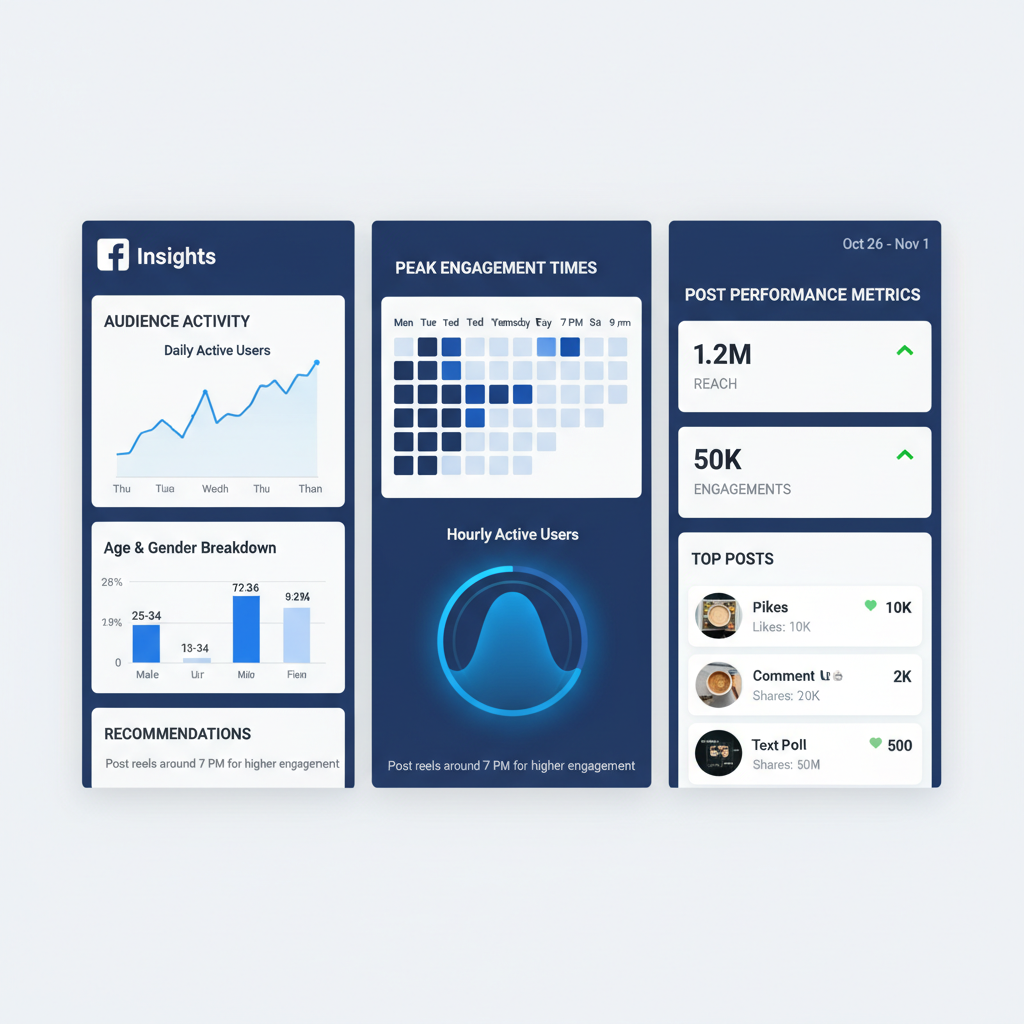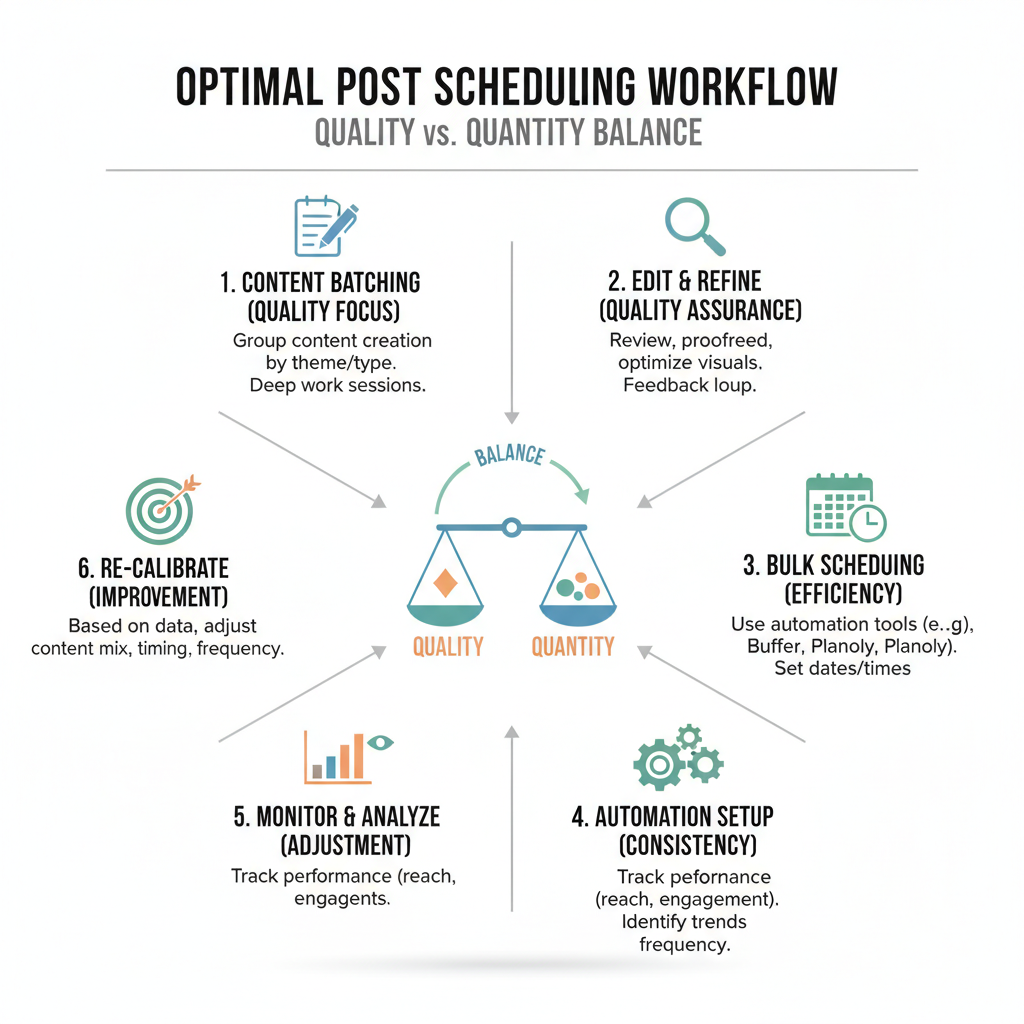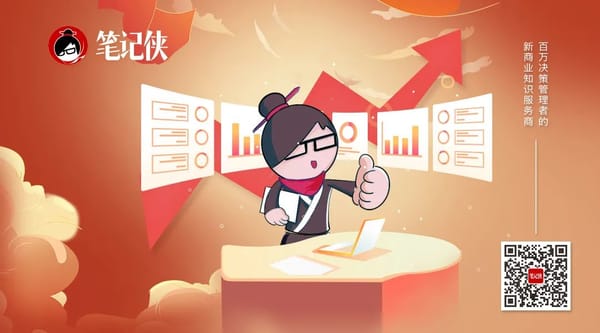How Often Should a Business Post to Facebook for Engagement
Learn how to determine the optimal Facebook posting frequency for your business using audience insights, industry benchmarks, and engagement strategies.

How Often Should a Business Post to Facebook for Engagement
Facebook remains one of the most influential social media platforms for brands, but many marketers wrestle with the question: how often should a business post to Facebook for engagement? The optimal posting frequency depends on the platform’s algorithm, your audience’s habits, industry dynamics, and your team’s capabilities. In this guide, we’ll break down how to set, measure, and refine your posting schedule to maximize reach, interaction, and conversions.

---
Understanding Facebook’s Algorithm and Posting Frequency Impact
Facebook’s News Feed algorithm ranks content based on engagement signals, relevance, and recency. While frequent posting can keep your brand top-of-mind, too many posts with low engagement may lead to reduced visibility.
Key algorithm considerations:
- Engagement-based ranking: Quality interactions outperform sheer volume.
- Avoiding spam signals: Posting too frequently without value can trigger downranking.
- Content diversity: Varied formats improve visibility compared to repeated identical styles.
Takeaway: Tie your posting rate to the quality and engagement potential of your content, not arbitrary quotas.

---
Industry Benchmarks: B2B vs. B2C
Industry norms provide a useful starting point, but tailor your plan through ongoing tests.
| Industry Type | Recommended Posts per Week | Rationale |
|---|---|---|
| B2B | 2–4 | Audiences favor in-depth insights, resources, and thought leadership. |
| B2C | 5–7 | Consumers react strongly to products, promotions, and lifestyle storytelling. |
B2C brands post more frequently to hop on trends, while B2B thrives on curated, expert-focused content.
---
Analyzing Audience Behavior Using Facebook Insights
Facebook Insights gives precise data on follower activity and post performance.
Metrics to monitor:
- Most active days/times for your audience
- Post-type performance (video, image, carousel, link)
- Demographics (age, location, interests)
- Engagement rate trends
Combining these metrics with controlled frequency experiments helps identify the maximum engagement window for your brand.
---
Determining Optimal Posting Frequency by Business Size
Resources significantly affect how much you can post without harming quality.
For small businesses:
- 3–4 posts/week balance effort with visibility
For mid-size companies:
- 5–7 posts/week mixing promotional and community content
For enterprise brands:
- 7–14 posts/week leveraging diverse teams and segmented audiences
Rule of thumb: Post only at a rate where you can maintain high content quality consistently.
---
Balancing Quality vs. Quantity to Avoid Post Fatigue
Overposting can cause followers to disengage.
Tips to balance:
- Prioritize impactful content over frequency
- Rotate topics, formats, and campaigns
- Interact through comments and private messages to supplement posting
Beyond a certain threshold, each additional post offers diminishing returns.
---
Strategic Timing: Best Days and Hours to Post
Understanding when your audience is online helps maximize reach.
Generally:
- Mid-week posts enjoy steady engagement
- Fridays can spike consumer-focused interactions
- Early afternoons (1–3 PM) align with work breaks and leisure browsing
Tailor timing to your industry, audience location, and seasonal patterns.

---
Using Content Batching and Scheduling Tools
Batch creation and scheduled publishing ensure regularity without daily strain.
Recommended tools:
- Meta Business Suite
- Buffer
- Hootsuite
- Later
Batching helps align campaigns with marketing objectives while reserving time for live engagement.
---
Mixing Content Types for Engagement Variety
A varied content mix prevents monotony and encourages more interactions.
Examples:
- Video posts for high attention and watch time
- Carousel ads to showcase multiple products
- Image posts for quick visual impact
- Link shares driving traffic to your site
Diversity also favors algorithm exposure by meeting user preference variety.
---
Monitoring KPIs for Facebook Engagement
KPIs to track include:
- Engagement rate = total interactions ÷ total followers
- Reach = unique viewers per post
- CTR = clicks ÷ impressions
- Conversion rate from Facebook traffic
Evaluate these monthly to decide whether to maintain or adjust posting frequency.
---
Adjusting Posting Frequency Quarterly
Shift your schedule based on longer-term insights rather than weekly fluctuations.
Quarterly adjustments allow for:
- Identifying true trends
- Factoring in seasonal engagement changes
- Keeping your posting rhythm predictable for followers
Consistent analysis ensures your frequency evolves with audience preferences.
---
Tips for Experimenting Safely
Strategic experimentation refines your Facebook strategy without risking audience loss.
Safe testing methods:
- Increase by 1–2 posts/week for a set trial period
- Track engagement, reach, and quality feedback
- Decrease if performance or content quality drops
- Communicate major shifts via Stories or pinned posts
---
Summary & Next Steps
Finding the ideal Facebook posting frequency for engagement is a dynamic process combining data, creativity, and audience understanding. Start with proven industry benchmarks, tailor through audience analytics, and adjust quarterly for optimal results.
A well-timed, quality-driven schedule keeps your brand relevant without overwhelming followers. Begin testing your posting frequency today, and use insights to turn engagement into measurable growth.



